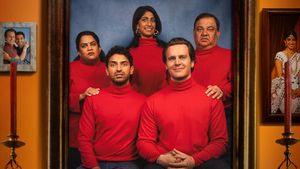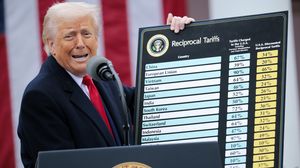A new California
poll on voter attitudes has turned up lucky numbers for
gays and a slap for conservative opponents. Conducted by the
Public Policy Institute of California, this statewide
survey shows that 54% of likely voters are opposed to
Proposition 8, which would eliminate the right of
same-sex couples to wed.
A Field Poll just
three months ago found a hair-thin majority of
Californians, 51%, in favor of same-sex marriage.
That's a big jump in our favor.
Or is it?
Released on
August 27, the PPIC sampling shows general voter attitudes
still neck and neck concerning same-sex marriage itself,
with 47% for it, 47% against.
So how come Prop.
8's not more popular?
Mark Baldassare,
president and CEO of the nonprofit PPIC, broke down the
numbers for The Advocate.
"As
always, things are complicated with public opinion,"
Baldassare explained. "If we compare general
attitudes toward same-sex marriage today and in 2000,
we're in a very different state of mind on the
topic."
While most
Californians opposed same-sex marriage then, they're
evenly divided now.
"This
general attitude of the public that we've seen has
been pretty consistent over the past three
years," he added.
But the
difference might just be in one phrase: eliminates right.
"In terms
of general attitudes, the public is deeply divided along
party lines, with solid majorities of Republicans
opposed, solid majorities of Democrats in favor, and
independents siding with Democrats"
on same-sex marriage, Baldassare noted. "[But]
if we look at responses to reading the ballot title
and label for Proposition 8" --which
summarizes, "Eliminates right of same-sex
couples to marry" -- then "we see 54% of
Californians opposed and 40% in favor."
Put another way:
Even though 47% disagree with same-sex marriage as a
concept, just 40% would actually vote to take away the right
of fellow citizens to marry.
Baldassare called
that finding "consistent with what we often see in
public opinion, which is that people can have a point of
view that's not necessarily reflected in their
support for a particular initiative."
There could be
several reasons why Prop. 8 doesn't arouse more
enthusiasm.
"People
might think, 'This [proposition] says
'eliminate,' and I didn't really
know there was a right at this point that we're
eliminating,' " Baldassare speculated.
"Or they might say, 'This says change the
constitution, and that's a big deal.' "
On the other
hand, Prop. 8's supporters may be angrier and
therefore more motivated to get out and vote. Among
yes voters, 57% called the vote on Proposition 8
"very important." Only 44% of those who
planned to vote no gave the measure so much
significance.
Still, with
ballot initiatives, the burden of proof is on the yes side.
In any election, organizers can expect less popular support
for a proposition than they might find for the idea
behind it. In November's election an evenly
matched electorate could be bad news for Prop. 8.
"If you go
back to the general views about same-sex marriage, less than
half say that they're opposed to same-sex
marriage," Baldassare said. "Which means
that to get over 50% of the vote, you'd have to
convince some of the people who say they don't
know--or some of the people who say
they're in favor of same-sex marriage--to
support your proposition. And that in turn raises two
other questions: How is that possible? And is that
likely to happen?"
Baldassare's conclusion: Prop. 8 faces an uphill
climb. "That would seem to be a lot of work for
the proponents to do."


















































































